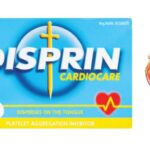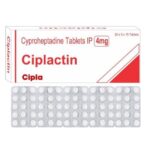Disprin 300mg Tablets: Uses, How to Take, Side Effects

Disprin is a brand of aspirin manufactured by Reckitt Benckiser Healthcare (UK) Ltd. Disprin is used for relieving minor aches, pains, and fevers. People also use it as an anti-inflammatory or a blood thinner. People can buy Disprin over the counter without a prescription. Everyday uses include relieving headaches, reducing swelling, and reducing fever.
Disprin contains Aspirin, also known as acetylsalicylic acid, a nonsteroidal anti-inflammatory drug (NSAID) as the active ingredient.
NSAIDs are a class of drugs with the following effects:
- relieving pain
- reducing fever
- lowering inflammation, in higher doses
These drugs are not steroids. Steroids often have similar benefits to NSAIDs, but they are not appropriate for everyone and can have unwanted side effects.
As analgesics, NSAIDs tend to be non-narcotic. This means that they do not cause insensibility or a stupor.
Disprin has many uses, including relieving pain and swelling, managing various conditions, and reducing the risk of cardiovascular events in people with a high risk.
Disprin can relieve mild to moderate pain, swelling, or both associated with many health issues, such as:
- headaches
- a cold or flu
- sprains and strains
- menstrual cramps
- long-term conditions, such as arthritis and migraine
For severe pain, a doctor may recommend using Disprin alongside another drug, such as an opioid pain reliever or another NSAID. It works by blocking a certain natural substance in your body to reduce pain and swelling.
Warnings
You should not use Disprin if you have a bleeding disorder such as hemophilia, a recent history of stomach or intestinal bleeding, or if you are allergic to an NSAID (non-steroidal anti-inflammatory drug) such as Advil, Motrin, Aleve, Orudis, Indocin, Lodine, Voltaren, Toradol, Mobic, Relafen, Feldene, and others.
Do not give this medication to a child or teenager with a fever, flu symptoms, or chickenpox. Salicylates can cause Reye’s syndrome, a serious and sometimes fatal condition in children.
Before taking this medicine
Do not give this medicine to a child or teenager with a fever, flu symptoms, or chickenpox. Disprin can cause Reye’s syndrome, a serious and sometimes fatal condition in children.
You should not use Disprin if you are allergic to aspirin, or if you have:
- a recent history of stomach or intestinal bleeding;
- a bleeding disorder such as hemophilia; or
if you have ever had an asthma attack or severe allergic reaction after taking aspirin or an NSAID (non-steroidal anti-inflammatory drug) such as Advil, Motrin, Aleve, Orudis, Indocin, Lodine, Voltaren, Toradol, Mobic, Relafen, Feldene, and others.
To make sure this medicine is safe for you, tell your doctor if you have:
- asthma or seasonal allergies;
- stomach ulcers;
- liver disease;
- kidney disease;
- a bleeding or blood clotting disorder;
- gout; or
- heart disease, high blood pressure, or congestive heart failure.
Taking Disprin during late pregnancy may cause bleeding in the mother or the baby during delivery. Tell your doctor if you are pregnant or plan to become pregnant.
Disprin can pass into breast milk and may harm a nursing baby. You should not breastfeed while using this medicine.
How to use Disprin tablets
If you are taking this medication for self-treatment, follow all directions on the product package. If you have any questions, ask your doctor or pharmacist. If your doctor has directed you to take this medication, take it exactly as prescribed.
Disprin Direct disperses on the tongue without water.
Adults and children 16 years and over: One to three tablets to a maximum of 13 tablets in 24 hours. The dose may be repeated after 4 hours, but the maximum dose in 24 hours must not be exceeded.
Elderly: There is no indication that dosage needs to be modified in the elderly.
Do not give to children aged under 16 years unless specifically indicated (e.g. for Kawasaki’s disease).
Take this medication by mouth. Drink a full glass of water (8 ounces/240 milliliters) with it unless your doctor tells you otherwise. Do not lie down for at least 10 minutes after you have taken this drug. If a stomach upset occurs while you are taking this medication, you may take it with food or milk.
Swallow enteric-coated tablets whole. Do not crush or chew enteric-coated tablets. Doing so can increase stomach upset.
Do not crush or chew extended-release tablets or capsules. Doing so can release all of the drugs at once, increasing the risk of side effects. Also, do not split extended-release tablets unless they have a score line and your doctor or pharmacist tells you to do so. Swallow the whole or split tablet without crushing or chewing.
What happens if I miss a dose?
Since Disprin is used when needed, you may not be on a dosing schedule. If you are on a schedule, use the missed dose as soon as you remember. Skip the missed dose if it is almost time for your next scheduled dose. Do not use extra medicine to make up for the missed dose.
What happens if I overdose?
Seek emergency medical attention or call the Poison Help line at 1-800-222-1222.
Overdose symptoms may include stomach pain, vomiting, diarrhea, vision or hearing problems, fast or slow breathing, or confusion.
What to avoid
Avoid drinking alcohol while you are taking Disprin. Heavy drinking can increase your risk of stomach bleeding.
If you are taking this medicine to prevent heart attack or stroke, avoid also taking ibuprofen (Advil, Motrin). Ibuprofen may make this medicine less effective in protecting your heart and blood vessels. If you must use both medications, ask your doctor how far apart your doses should be.
Ask a doctor or pharmacist before using any cold, allergy, or pain medication. Many medicines available over the counter contain aspirin or an NSAID. Taking certain products together can cause you to get too much of this type of medication. Check the label to see if a medicine contains aspirin, ibuprofen, ketoprofen, naproxen, or an NSAID.
What are the side effects of Disprin?
Get emergency medical help if you have signs of an allergic reaction to Disprin: hives; difficult breathing; swelling of your face, lips, tongue, or throat.
Stop using this medicine and call your doctor at once if you have:
- ringing in your ears, confusion, hallucinations, rapid breathing, seizure (convulsions);
- severe nausea, vomiting, or stomach pain;
- bloody or tarry stools, coughing up blood or vomit that looks like coffee grounds;
- fever lasting longer than 3 days; or
- swelling, or pain lasting longer than 10 days.
Common aspirin side effects may include:
- upset stomach, heartburn;
- drowsiness; or
- mild headache.
This is not a complete list of side effects and others may occur. Call your doctor for medical advice about side effects. You may report side effects to FDA at 1-800-FDA-1088.
What other drugs will affect Disprin?
Ask your doctor before using Disprin if you take an antidepressant such as citalopram, escitalopram, fluoxetine (Prozac), fluvoxamine, paroxetine, sertraline (Zoloft), trazodone, or vilazodone. Taking any of these medicines with an NSAID may cause you to bruise or bleed easily.
Ask a doctor or pharmacist if it is safe for you to use this medicine if you are also using any of the following drugs:
- a blood thinner (warfarin, Coumadin, Jantoven), or other medication used to prevent blood clots; or
- other salicylates such as Nuprin Backache Caplet, Kaopectate, KneeRelief, Pamprin Cramp Formula, Pepto-Bismol, Tricosal, Trilisate, and others.
This list is not complete. Other drugs may interact with aspirin, including prescription and over-the-counter medicines, vitamins, and herbal products. Not all possible interactions are listed in this medication guide.





